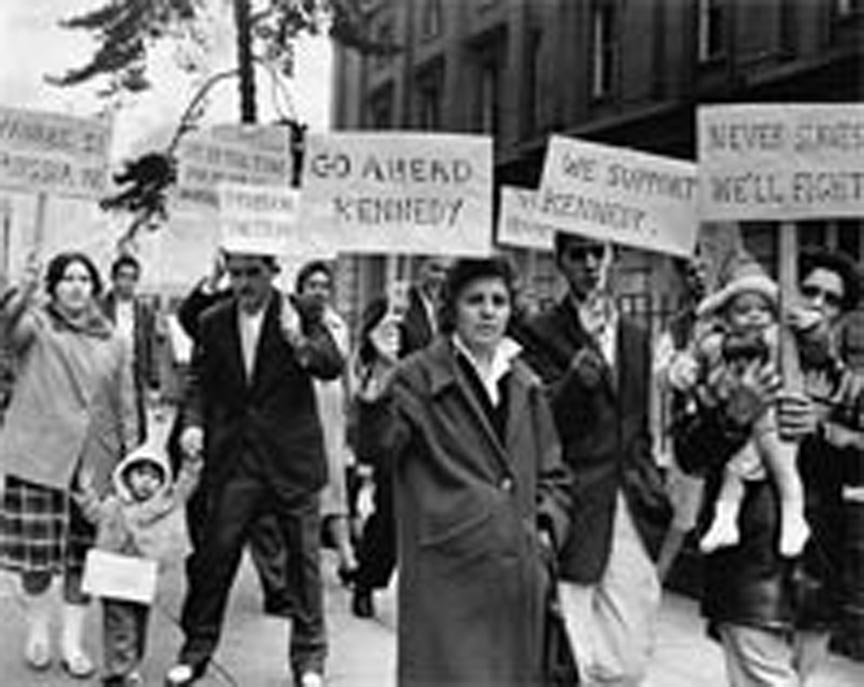- Catalog No. —
- ba019122, OrHi 103177
- Date —
- October 1962
- Era —
- 1950-1980 (New Economy, Civil Rights, and Environmentalism)
- Themes —
- Government, Law, and Politics
- Credits —
- Oregon Historical Society Research Library
- Regions —
- Portland Metropolitan
- Author —
- Unknown
Marching Against Castro, 1962
In response to an earlier peace demonstration on October 24, 1962, a group of Cuban exiles gathered outside Portland’s Pioneer Courthouse to support President John Kennedy’s naval blockade of Cuba. Many exiles living in the U.S. had fled Cuba following Fidel Castro’s victory over the Battista government in 1959 and were hopeful that a direct confrontation might depose Castro’s dictatorial regime. Similar marches were held throughout the U.S.
President John Kennedy’s administration developed a policy of “containing, undermining, discrediting, and isolating the Castro regime” in reaction to Castro’s revolution in Cuba, according to a December 6, 1962 memorandum written by President Kennedy’s Special Assistant for National Security Affairs McGeorge Bundy. Bundy listed ten overt courses of action that would be taken, including a trade embargo and allowing Cuban exiles to join the U.S. armed forces. In this memo Bundy also recommended covert actions, including U.S. government support of “certain Cuban exiles” who would then “encourage the Cuban people to engage in minor acts of sabotage.” U.S. government officials also considered sabotaging Cuban cargo and shipping operations and encouraging Cuban diplomats to defect. Other ideas included distributing anti-Castro propaganda by supporting the exiles’ “Voice of Free Cuba” radio broadcasts and helping them launch balloons carrying leaflets and other materials.
The Cuban trade embargo continues today and Fidel Castro periodically accuses the U.S. of sabotage, propaganda distribution, and assassination attempts. Cuban exiles continue to support the effort to overthrow the Castro regime.
© Oregon Historical Society, 2002.
